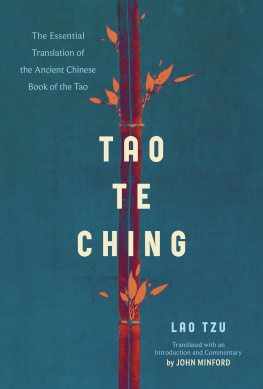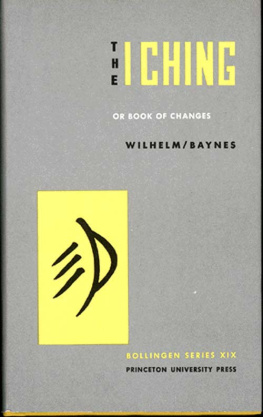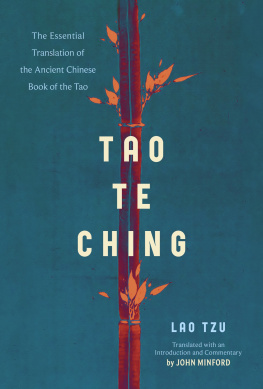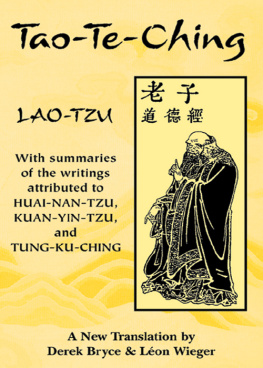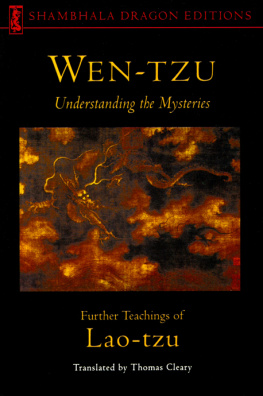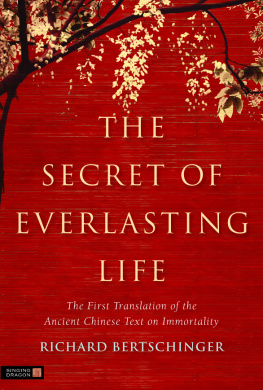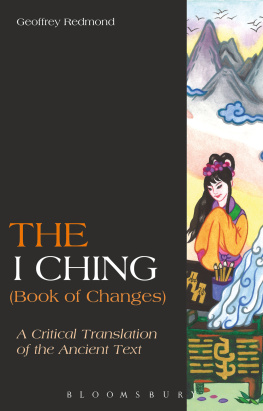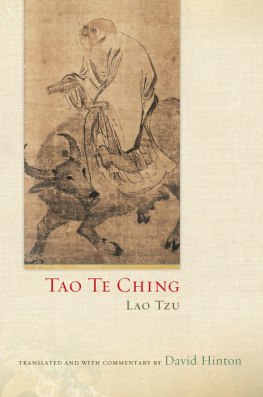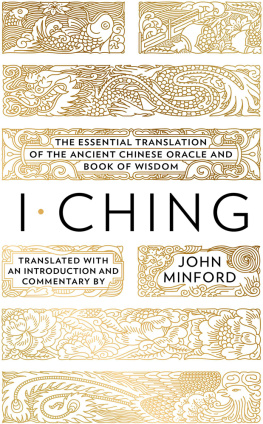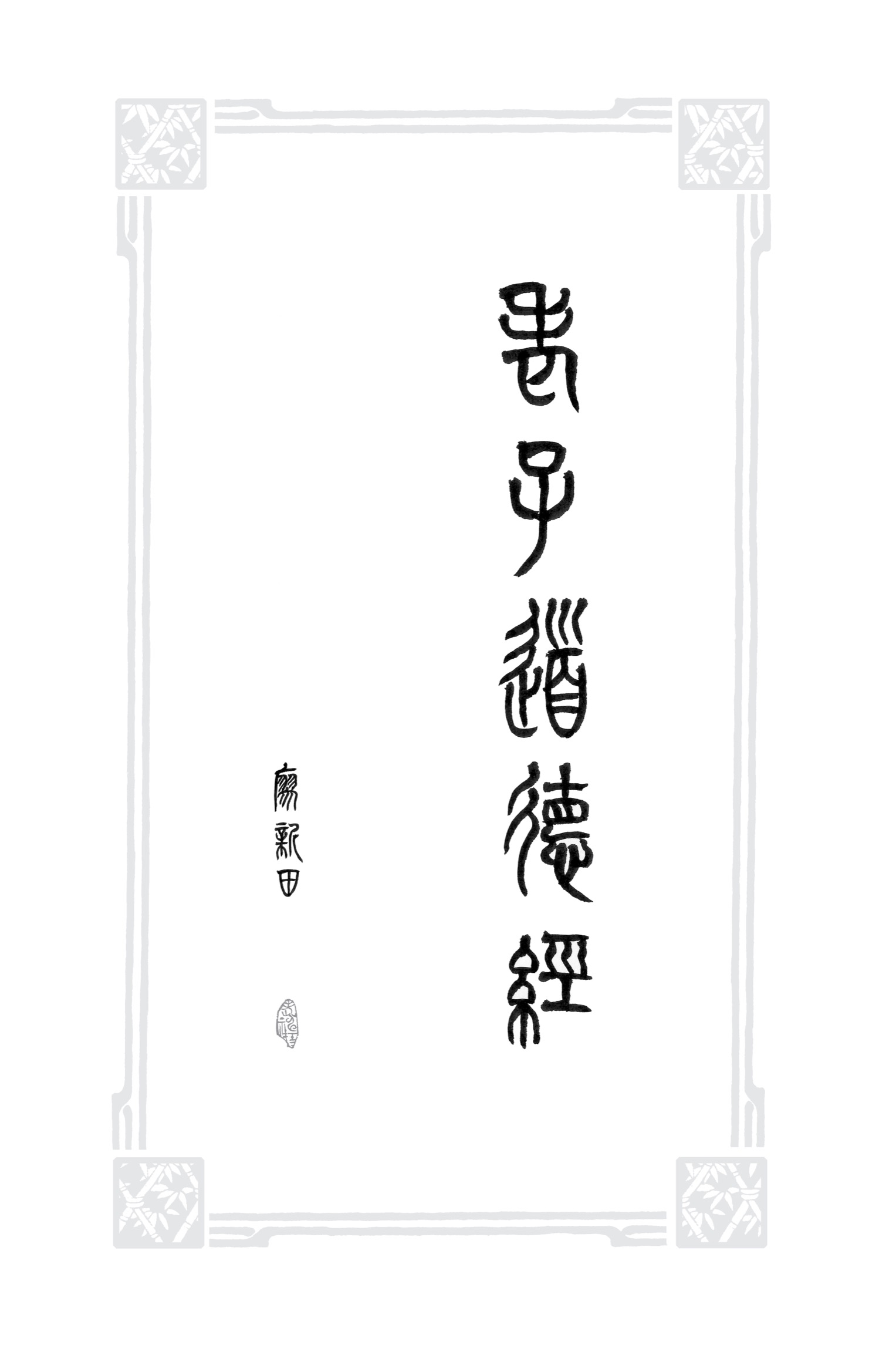VIKING An imprint of Penguin Random House LLC 375 Hudson Street New York, New York 10014 penguinrandomhouse.com Translation, introduction, and commentary copyright 2018 by John Minford Penguin supports copyright. Copyright fuels creativity, encourages diverse voices, promotes free speech, and creates a vibrant culture. Thank you for buying an authorized edition of this book and for complying with copyright laws by not reproducing, scanning, or distributing any part of it in any form without permission. You are supporting writers and allowing Penguin to continue to publish books for every reader. Calligraphy by Liao Hsin-tien Image on from
, first published in 1615. | Minford, John, translator, editor. | Minford, John, translator, editor.
Title: Tao te ching (Daodejing) : The tao and the power / Lao-tzu (Laozi) ; translated with an introduction and commentary by John Minford. Other titles: Dao de jing. English Description: New York : Viking, [2018] | Includes bibliographical references and index. Identifiers: LCCN 2018030175 (print) | LCCN 2018038136 (ebook) | ISBN 9780525560319 (ebook) | ISBN 9780670024988 (hardback) Subjects: | BISAC: BODY, MIND & SPIRIT / Spiritualism. | PHILOSOPHY / Taoist. | RELIGION / Taoism (see also PHILOSOPHY / Taoist).
Classification: LCC BL1900.L26 (ebook) | LCC BL1900.L26 E5 2018 (print) | DDC 299.5/1482dc23 LC record available at https://lccn.loc.gov/2018030175 Version_1
INTRODUCTION
This little book is the founding text of Chinas ancient and enduring religious philosophy, known in the West as Taoism. Taoism, with its history of two and a half millennia, is usually depicted in stark contrast with Chinas other main traditional philosophy, the secular ideology known in the West as Confucianism, whose founding text is another equally short early work,
The Analects of Confucius (
Lunyu). Broadly speaking, we may say that Confucianism as it evolved in subsequent centuries emphasized the need for order, respectful harmony within family and society, coded ritual, precise terminology, clearly delineated duty, and structured hierarchy in daily life. Taoism, on the other hand, emphasized inner freedom, meditation, and the Self-Cultivation of the individual, surrender to the spontaneous rhythms of nature, primordial intuition, and exploration of the mysteries of the human condition and the wonders of the cosmos, listening to the silent music of the Tao.
The Tao and the Power (
Daodejing) is attributed to a shadowy figure known as Lao-tzu (the Old Master), This was the earliest outpouring of Chinese expressive lyricism.
TWO MASTERS: LAO-TZU AND CONFUCIUS
Legend has it that the two Masters met more than once, Lao-tzu being somewhat senior to Confucius.
TWO MASTERS: LAO-TZU AND CONFUCIUS
Legend has it that the two Masters met more than once, Lao-tzu being somewhat senior to Confucius.
In a probably apocryphal chapter of the later The Book of Taoist Master Zhuang, their encounters are described with a mischievously mocking Taoist sense of humor. Confucius had reached the age of fifty-one and still had not heard the Tao. Finally he went south to Pei and called on Lao-tzu. Ah, here you are! said Lao-tzu. Ive heard of you as a worthy man from the north. Have you attained the Tao? Not yet, replied Confucius.
How have you sought it? I sought it through rules and regulations. Five years went by and I could not attain it. How else did you seek it? asked Lao-tzu. I sought it in the Yin and the Yang. Twelve years went by and still I could not attain it. Of course not! replied Lao-tzu.
The Tao cannot be sought in this manner... The perfecti of olden times wandered freely in the wilds, they found nourishment in the fields of Simplicity, they took their stand in the garden of No-Giving. They abode in Non-Action, and found easy nourishment. Their wanderings brought them to the True Tao. This was their Wealth... Confucius called on Lao-tzu again and this time asked him about the Virtues of Benevolence and Righteousness.
Lao-tzu replied: When chaff from the winnowing fan blinds the eyes, then Heaven, Earth, and the Four Directions all appear to be out of place. The sting of a mosquito or of a horsefly can keep a man awake all night. Similarly, these so-called Virtues of yours do nothing but muddle the mind and cause confusion. Let the world cleave instead to Simplicity and the Uncarved Block. Let it move freely with the wind, and abide in Inner Power. Dont go around huffing and puffing, beating a big drum as if to chase an errant child! The snow goose needs no daily bath to stay white.
The crow needs no daily ink to stay black... When Confucius returned from this visit to Lao-tzu, he was silent for three days. His disciples questioned him, saying: When you met Lao-tzu, what advice did you give him? Finally, replied Confucius, I have set eyes on a Dragon! A Dragon that coils to show off the extent of its body, that sprawls to display the patterns on its scales. A Dragon that rides on the Breath of the Clouds, and feeds on the purest Yin and Yang. My mouth simply fell open in amazement. 14586 BC), the Grand Historian, recorded a similar encounter, in his biographical sketch of Lao-tzu. 14586 BC), the Grand Historian, recorded a similar encounter, in his biographical sketch of Lao-tzu.
Lao-tzu was from Quren Village in the southern state of Chu. His name was Li Dan, and he was the Zhou Official Archivist. Confucius went to Zhou to ask him about the Rites. Lao-tzu said to him: You speak of men who have long decayed together with their bones. Nothing but their words has survived. When a Gentleman is in tune with the times, he rides a carriage; when he is out of tune, he makes his way disheveled as he is.
I have heard that just as the best merchant keeps his stores hidden so that he appears to possess nothing, so the True Gentleman conceals his abundant Inner Power beneath an appearance of foolishness. Rid yourself of Pride and Desire, put aside your fancy manner and your lustful ways. They will bring you nothing but harm. That is all I have to say. After he had taken his leave of Lao-tzu, Confucius said to his disciples: Birds fly; fishes swim; animals run. These things I know.
Whatsoever runs can be trapped; whatsoever swims can be caught in a net; whatsoever flies can be brought down with an arrow. But a Dragon riding the clouds into the Heavensthat is quite beyond my comprehension! Today I have seen Lao-tzu. He is like a Dragon! Lao-tzu cultivated the Tao and the Inner Power. He advocated the hermits life, a life lived in obscurity. He lived in Zhou for a long time, but when he saw that the Zhou dynasty was in a state of decline, he departed. When he reached the Pass, the Keeper of the Pass Yin Xi said to him: You sir are about to retire into seclusion, I beseech you to write a book for me! So Lao-tzu wrote a book in two parts, treating of the Tao and the Power, in a little over five thousand words.
And then he went on his way... No one was able to tell who he really was, no one knew where he went to in the end... He was a recluse. The two accounts differ in many ways, but they have in common the vision of Lao-tzu as that transcendent, most auspicious and most powerful creature, a Dragon. He is portrayed as someone with a truly remarkable charisma, someone whose

